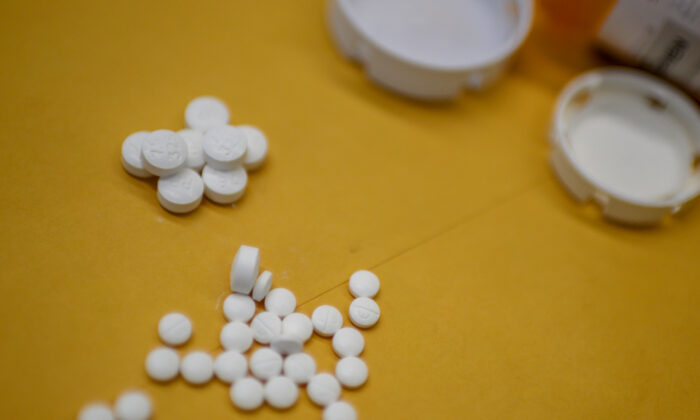US Should Recognize American Samoans as Citizens, Judge Says
More than $333 million will go to help communities affected by the opioid crisis, the Department of Justice said on Friday. The money will go to supporting families, children, and victims of crimes directly affected by the drug abuse, as well as first responders who deal with the crisis regularly.
“The opioid epidemic is the deadliest drug crisis this country has ever faced,” said Attorney General William Barr. “The Department of Justice is committed to using all means available to bring drug traffickers to justice, disrupt the supply chain, support our law enforcement officers, and help the victims.”
The funds will be distributed to different programs and jurisdictions across the United States with the intention of maximizing its effectiveness, according to the Dec. 13 statement.
The release noted that more than $5 million will go to Oklahoma state, local, and tribal officials to assist in their fight against the epidemic.
“Oklahomans are committed to the fight for our families and communities,” said U.S. Attorney Trent Shores. “The opioid crisis must be fought on multiple fronts, including prevention, recovery and enforcement. This more than $5.2 million will aid Oklahoma’s state, tribal and community partners to battle addiction and perform the necessary, on-the-ground work to save lives.”
More than 130 people per day die in the United States over opioid-related drug overdoses, according to the National Institute on Drug Abuse. In 2017, approximately 50,000 Americans died in an opioid overdose, according to the Opioid Detection Challenge.
 Paramedics help a man who is overdosing in the Drexel neighborhood of Dayton, Ohio, on Aug. 3, 2017. (Benjamin Chasteen/The Epoch Times)
Paramedics help a man who is overdosing in the Drexel neighborhood of Dayton, Ohio, on Aug. 3, 2017. (Benjamin Chasteen/The Epoch Times)The Centers for Disease Control estimates that the opioid crisis costs the United States $78.5 billion a year in healthcare, lost productivity, addiction treatment, and criminal justice.
A report in October noted that the opioid crisis in the United States has cost the economy at least $631 billion in just four years. The report by the Society of Actuaries analyzed nonmedical opioid use during this time-frame. Most of the costs were attributable to health care and premature mortality.
Nearly one-third of the total estimated economic burden, about $205 billion, was ascribed to health care and the excess spending for those with opioid use disorder, infants born with neonatal abstinence syndrome or neonatal opioid withdrawal syndrome, and for relatives of those with diagnosed opioid use disorder.
The neonatal syndrome is caused when a pregnant mother uses certain drugs such as opioids, which force her baby to go through withdrawal from the drugs after birth.
Premature mortality costs accounted for the biggest chunk of the estimated economic burden, totaling $235 billion. This amount was mainly driven by the lost lifetime earnings of individuals who overdosed and died prematurely from opioids.
While more than 2,000 state and local governments have sued the drug industry over the crisis, the report released on Oct. 15 finds that governments bear less than one-third of the financial costs. The rest of it is borne by individuals and the private sector.
“The opioid crisis has destroyed far too many lives and left too many Americans feeling helpless and hopeless,” said Office of Justice Programs (OJP) Principal Deputy Assistant Attorney General Katharine Sullivan. “This epidemic—the most deadly in our nation’s history—is introducing new dangers and loading public health responsibilities onto the public safety duties of our law enforcement officers. OJP is here to support them through this unprecedented and extremely challenging time.”
Bowen Xiao contributed to this report.
This article is from the Internet:More Than $333 Million Will Go to Combat Opioid Crisis: DOJ
Congressman Suggests National Guard Could Enforce Gun Laws in Virginia
